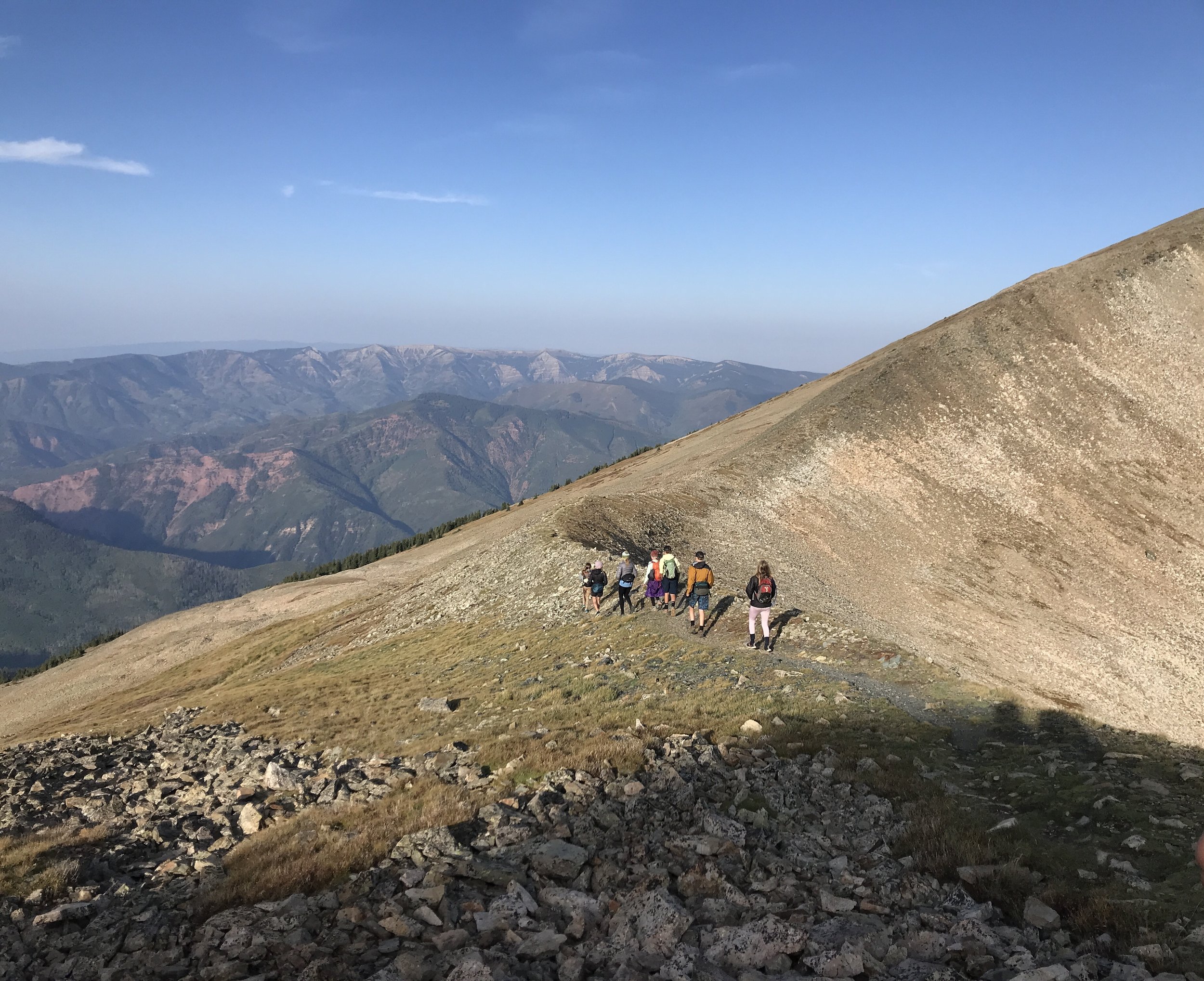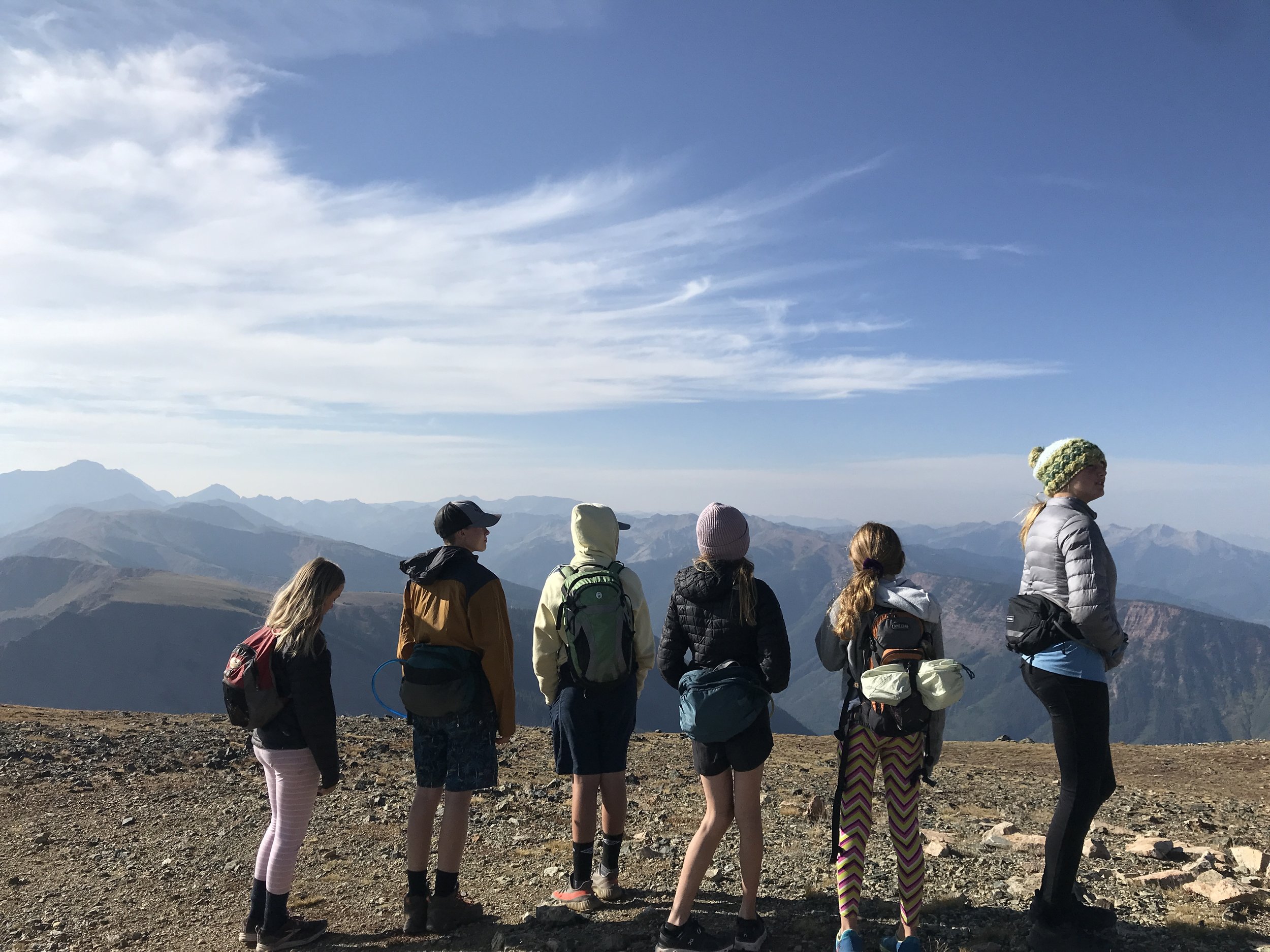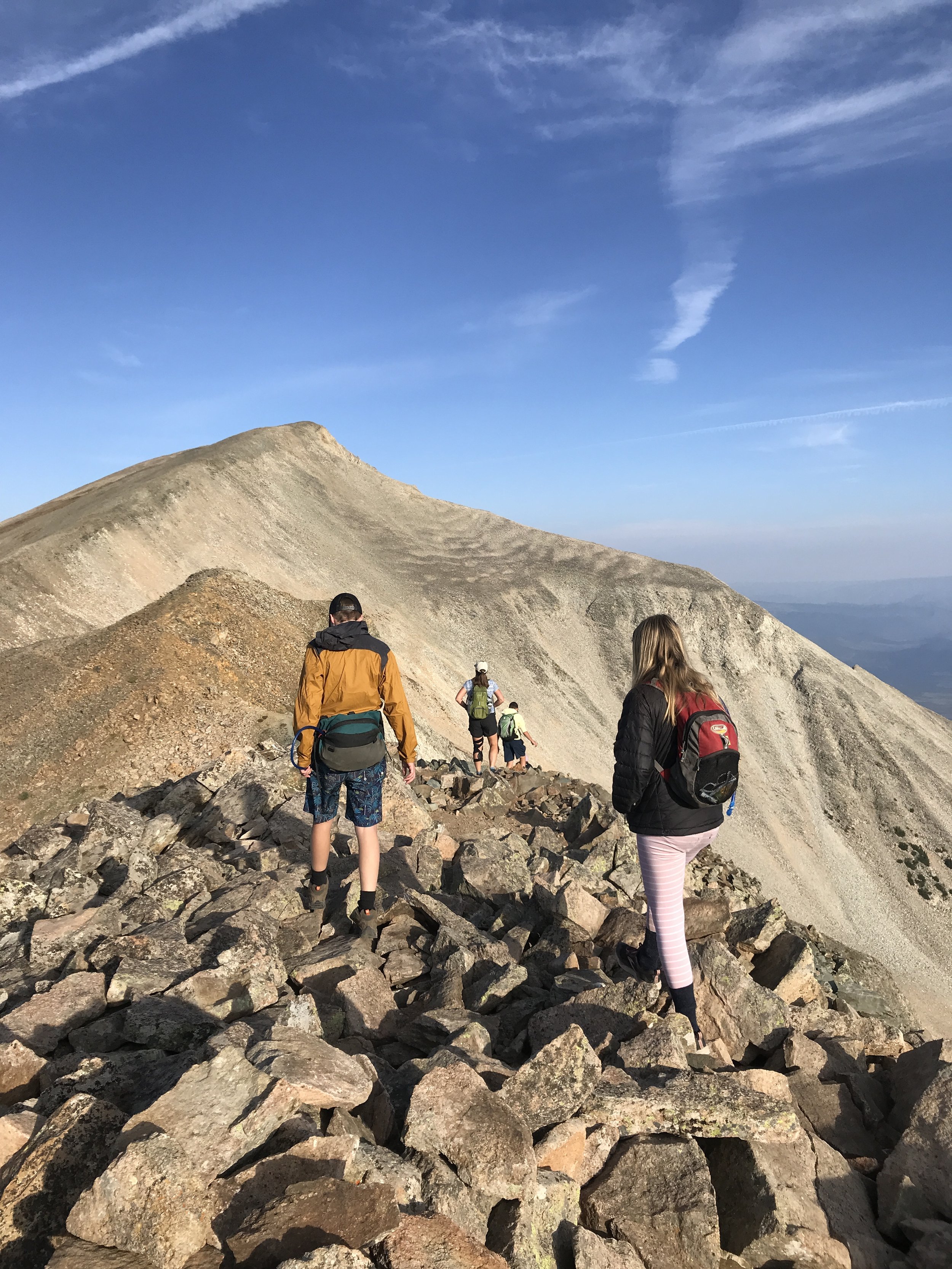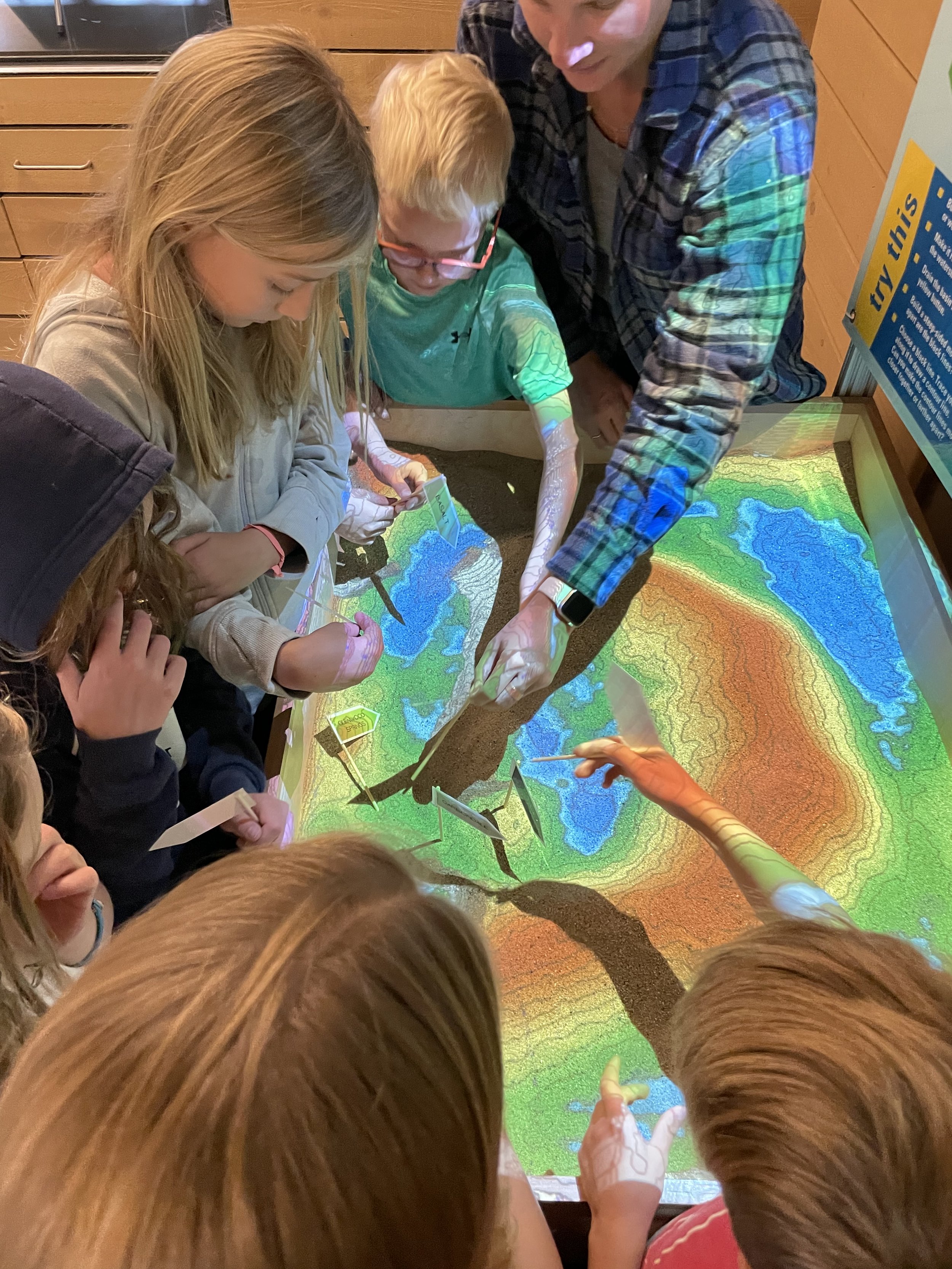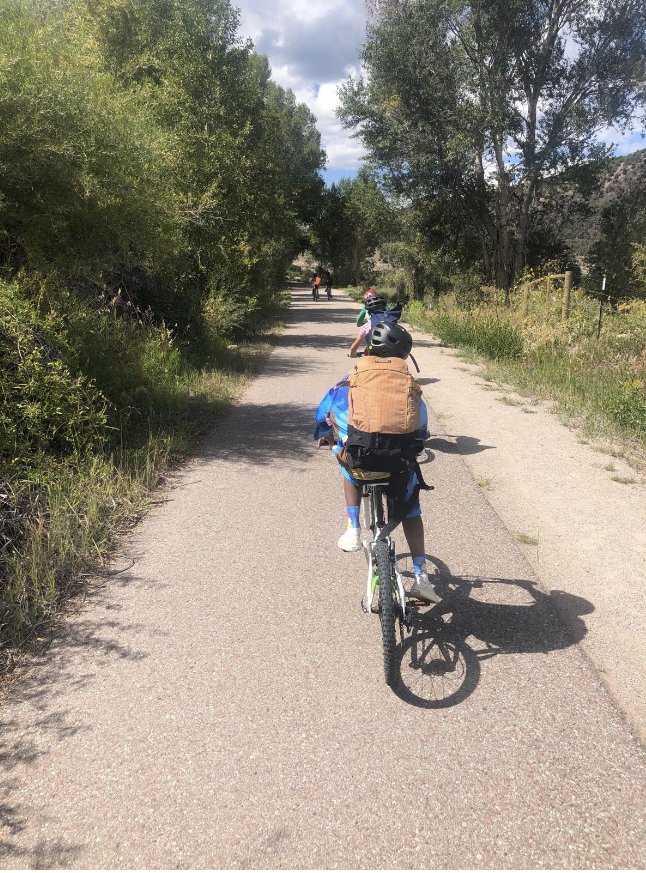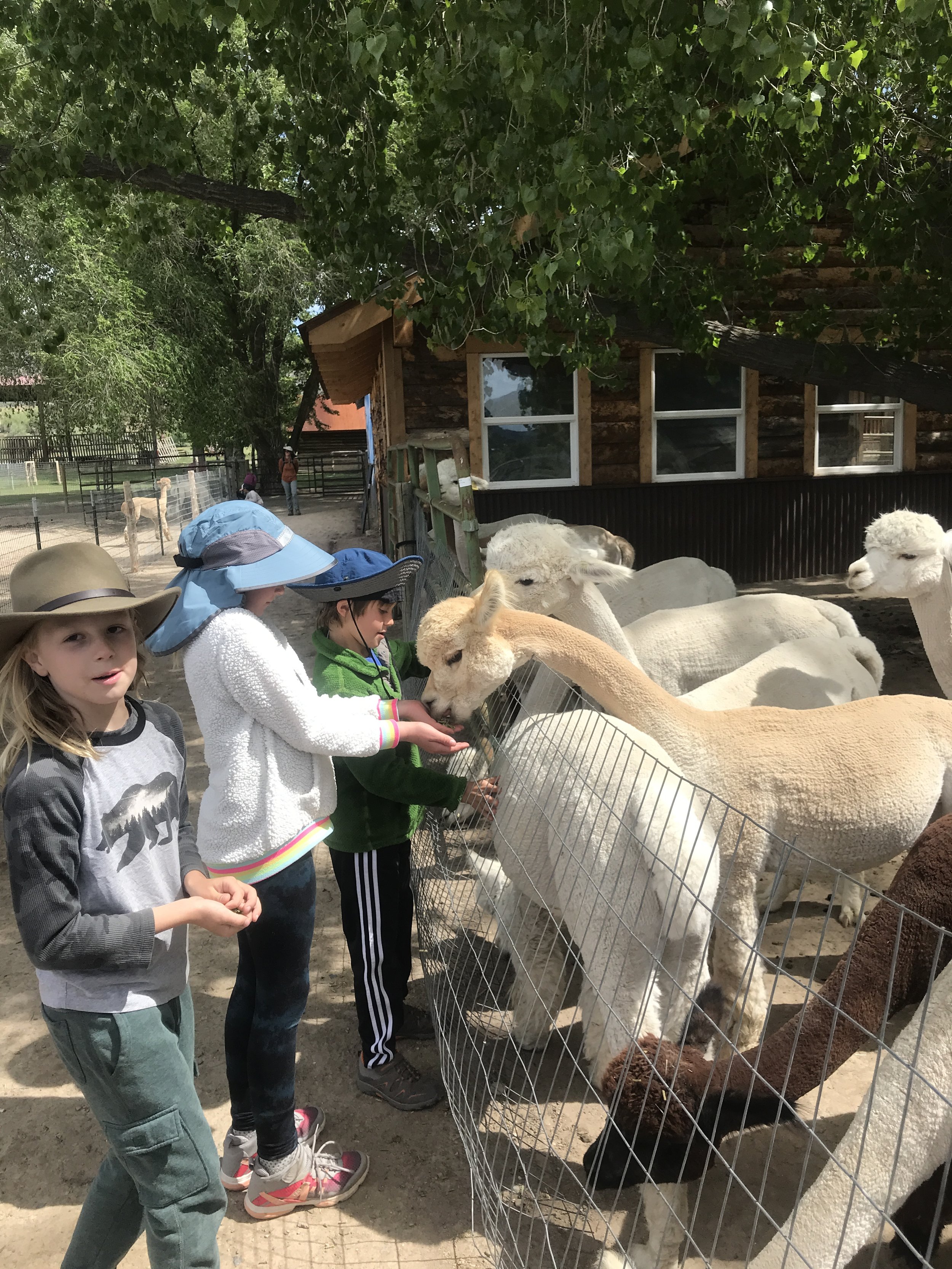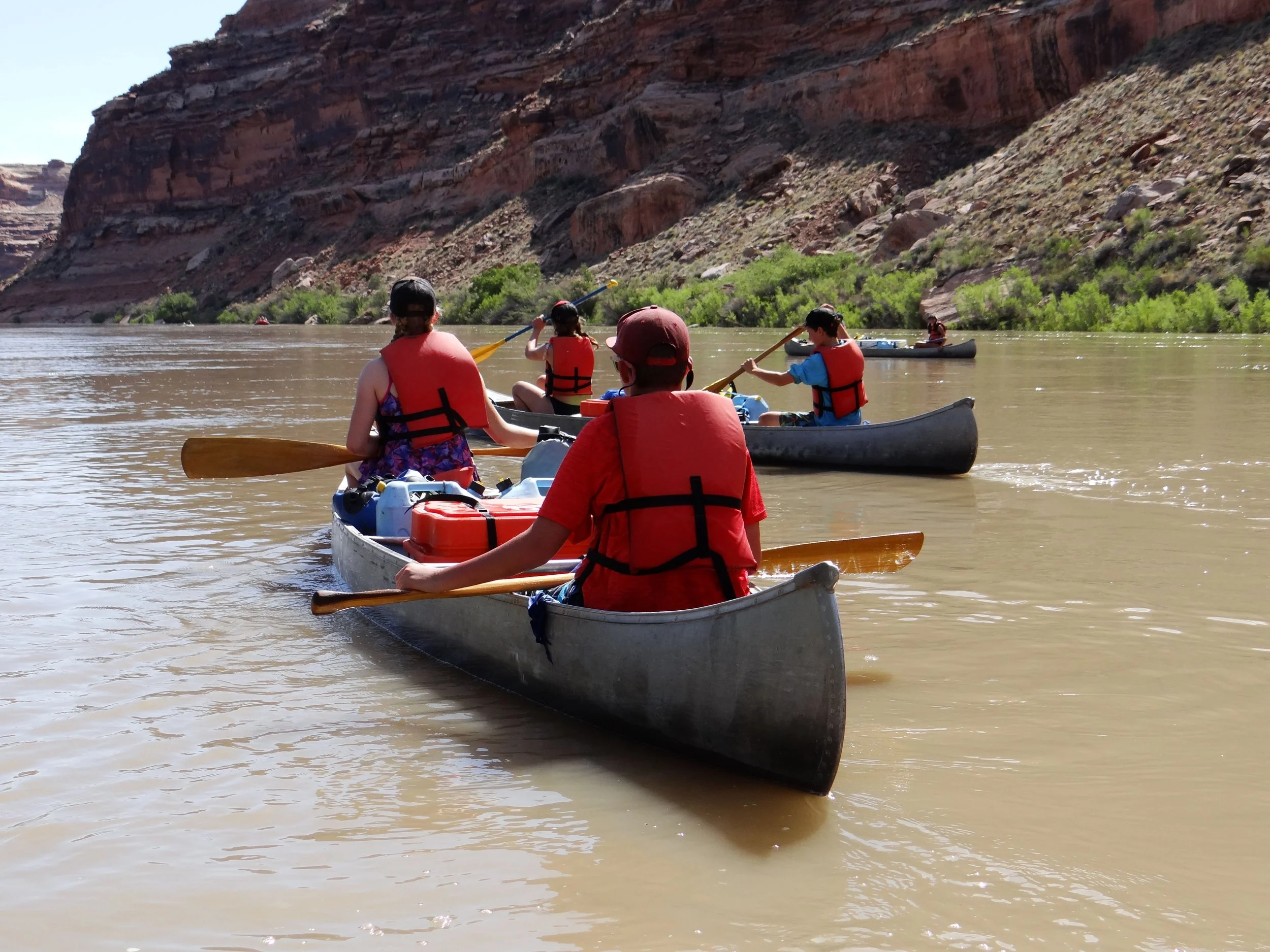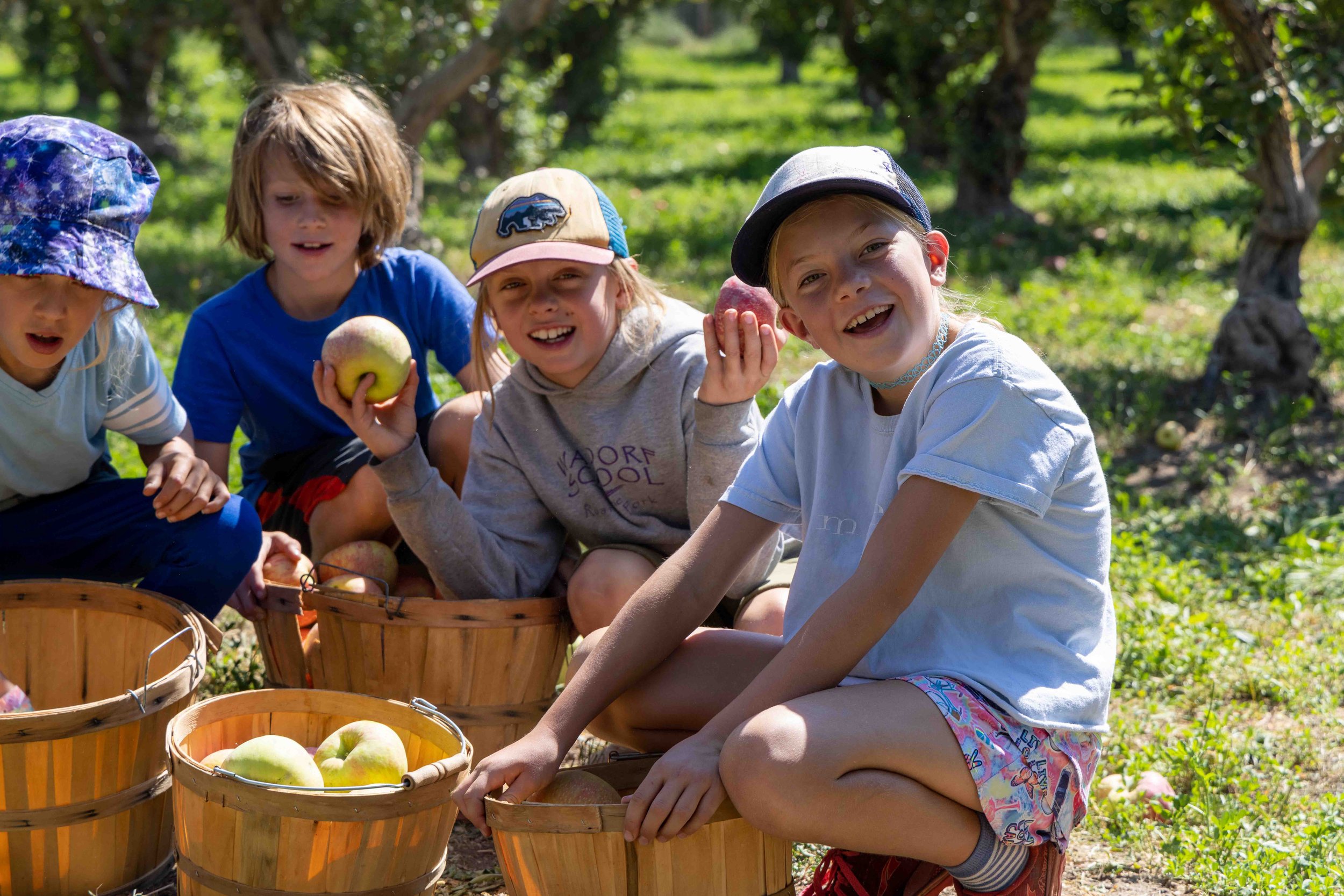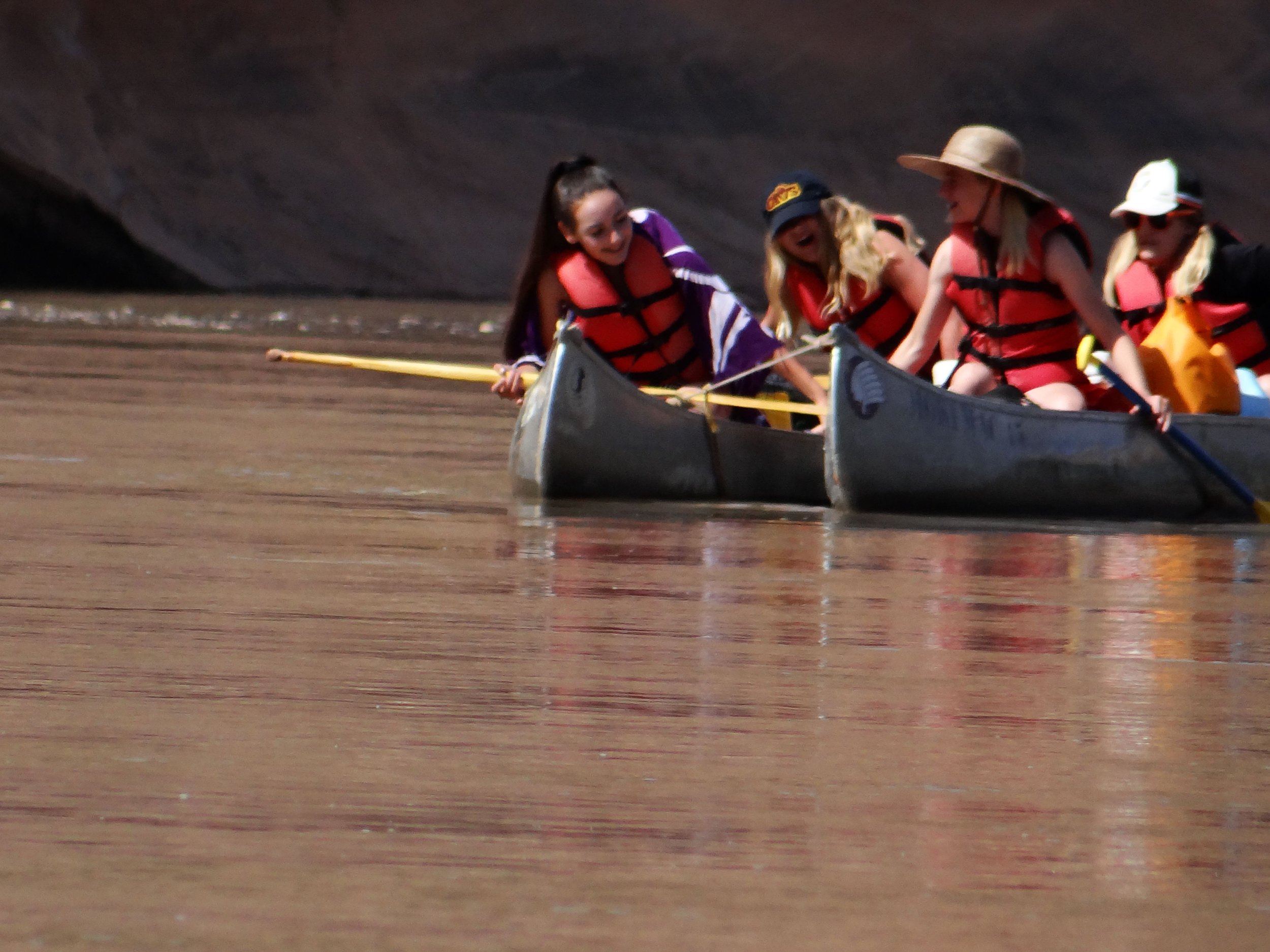Program Spotlight: Outdoor Education & Field Trips
At first glance, it may seem like field trips are just fun and games. But the truth is, they are critical components of our curriculum that deepen learning, connections and social-emotional development in our students. Field trips begin in 1st grade and increase in complexity throughout the grades. Field trips and outdoor education are also directly intertwined with academic curriculum and serve as key opportunities for hands-on learning that builds student engagement and understanding.
For example, as 4th graders study local geography and history, they take field trips around our local valley and the state of Colorado to directly explore and connect with their studies of local geography, history and cultures in experiential ways. 3rd graders study farming and human systems in their curriculum and thus have the opportunity to visit local farms to see first hand how the farmers work with the land to produce food and resources. 3rd grade also studies building and human shelters and they takes time to visit local building sites for different types of homes to explore first hand what it means to meet the need for shelter.
When what a student learns can be seen and demonstrated outside the walls of a classroom, it becomes more tangible and builds deeper connections. In Waldorf Education, experiential learning goes beyond our campus to allow students to directly engage and explore the world around them. Outdoor education and field trips are key tools to support this value.
Stepping Outside of Comfort Zones:
Not only can intentionally considered field trips directly link to curriculum to deepen learning, they provide students with opportunities to step outside of their comfort zone. By exploring new environments, talking to new people and tackling new experiences, students are challenged to be flexible, adaptable and grow quickly. What’s more, when they work together as a group in the new environment, teamwork, collaboration and connection become their greatest assets. Field trips directly build social-emotional capacities for our students in countless ways that prepares them for life.
Our outdoor education programs include trips such as a backcountry winter hut trip in 7th grade, back packing in the Middle School, river trips and so much more. Students build in the lower grades to over night trips starting in 3rd grade that increase to weeklong trips in Middle School intended to challenge our students in countless ways. Examples of past 8th grade class trips include trips to New Orleans, Seattle, Vancouver Island, Canoeing the Green River and so many more. These trips always include components of service or engagement with the local areas and community, intentional opportunities for class teamwork and the chance for students to reflect on the totality of their journey together to reach 8th Grade.
During all trips, students must work together and carry collective responsibility for navigating a new environment with respect, curiosity and consideration. Students have the chance to engage directly and ask questions of professionals in their fields and learn more in a range of dynamic environments. Students learn how to connect with other human beings and explore the world with deep curiosity. All of which translates to invaluable human capacities for life including collaboration, consideration and curiosity.
Benefits of Field Trips
In a recent article from Edutopia, “new research published in The Journal of Human Resources argues that field trips, and the vital educational experiences that they provide can deliver a host of positive social and academic outcomes and are worth the effort.” The research went further to note that “if schools make culturally-enriching field trips an integral part of the education experience, all students—especially those whose parents have a harder time accessing these experiences on their own—would benefit.” (Source). And what benefits do these field trips deliver?
“In the study, researchers assigned more than 1,000 fourth- and fifth-grade students in Atlanta to two groups. One group participated in three to six “culturally-enriching” field trips—visits to an art museum, a live theater performance, and a symphony concert—while students in the control group stayed put in class. The outcome? Kids in the field trip group “scored higher on end-of-grade exams, received higher course grades, were absent less often, and had fewer behavioral infractions,” compared to students in the control group, according to a ScienceDaily brief. Benefits lasted two to three years, Greene writes, and were “most visible when students were in middle school.” (Source).
In other words, the impact of field trips has the potential to go well beyond a week long trip. It’s also important to reiterate that “Field trips aren’t a threat to in-class instruction, Erickson notes, they’re a tool to help bolster engagement and expand students’ horizons. ‘It's possible to expose students to a broader world and have a culturally enriching curriculum without sacrificing academic outcomes, and it may actually improve academic outcomes,’ Erickson says. Far from harming test scores, the researchers found that culturally rich excursions reinforce academics and “students who participated in these field trips were doing better in class.” (Source).


